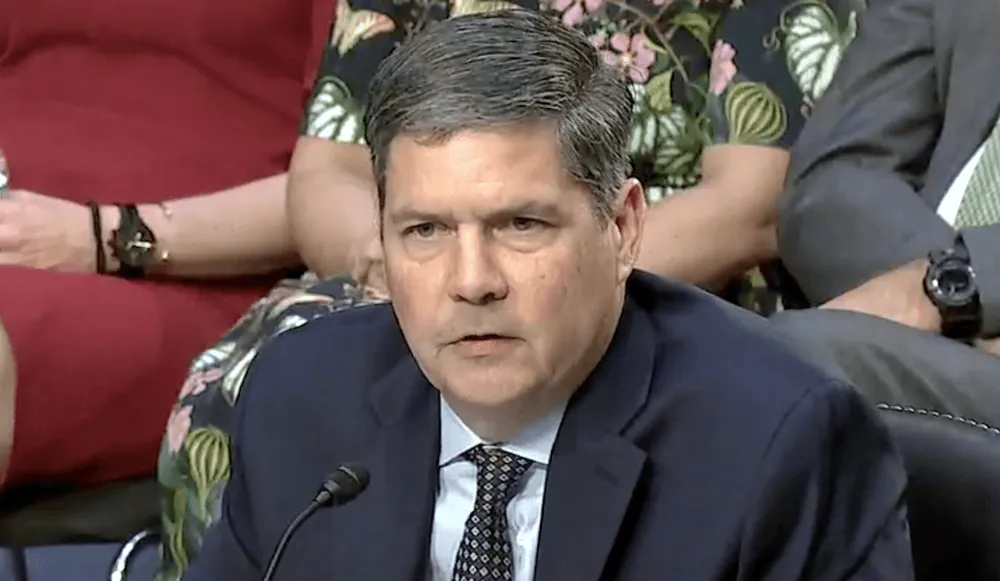New leader for White House counterintelligence office is confirmed in Senate
The Biden administration finally has a new leader for its counterintelligence office after the Senate easily confirmed Michael Casey for the job.
Casey, the Democratic staff director for the Senate Intelligence Committee, was confirmed by unanimous consent on Tuesday to be director of the National Counterintelligence and Security Center (NCSC).
He was tapped in June for the post — which has sat empty for about two and a half years — and approved by the Senate Intelligence Committee in July. His relatively swift confirmation stands in stark contrast to his predecessor, Bill Evanina, who had to wait almost two years to be approved by the Senate because of unrelated political reasons.
The NCSC, a branch of the Office of the Director of National Intelligence (ODNI), is responsible for synchronizing U.S. counter-espionage activities across the 18-member clandestine community; combating influence campaigns by foreign adversaries; and protecting emerging technology.
Evanina was the only Senate-confirmed director in the agency’s nearly 10-year history before today.
Casey’s confirmation comes amid ongoing warnings about foreign operations in the U.S., including China’s massive efforts to recruit spies and steal Western intellectual property. Hacking, spying and influence operations from adversaries such as Russia, Iran and North Korea are also top concerns for the NCSC.
During his confirmation hearing, Casey said he wanted to “ensure that our counterintelligence efforts are fully coordinated. There are a lot of players in that space and we need to make sure we cover the waterfront in an appropriate way” to meet evolving threats.
He also said Director of National Intelligence Avril Haines had asked him to examine the federal government’s supply chains “particularly with regard to cyber,” describing what software agencies rely on as a “deep” concern of hers — a possible nod to Microsoft’s recent announcement that a Chinese-based hacking group breach government email accounts to collect intelligence.
Casey, who worked almost three decades as a staffer on Capitol Hill, told the lawakers he defined success as being able to force foreign intelligence services to look elsewhere to pilfer secrets because it was “too hard here and they’re too likely to get caught.”
“They just decide they can’t operate here.”
He also said NCSC could be better at “coordinated outreach to the private sector and academia about the threats they're facing and ways they can mitigate it.”
Thrilled to see the Senate unanimously confirm Mike Casey as Director of the @NCSCgov – a position that’s been empty for several years. He’ll bring tremendous experience and an incomparable understanding of the IC to this critical role.
— Mark Warner (@MarkWarner) September 12, 2023
Martin Matishak
is the senior cybersecurity reporter for The Record. Prior to joining Recorded Future News in 2021, he spent more than five years at Politico, where he covered digital and national security developments across Capitol Hill, the Pentagon and the U.S. intelligence community. He previously was a reporter at The Hill, National Journal Group and Inside Washington Publishers.



